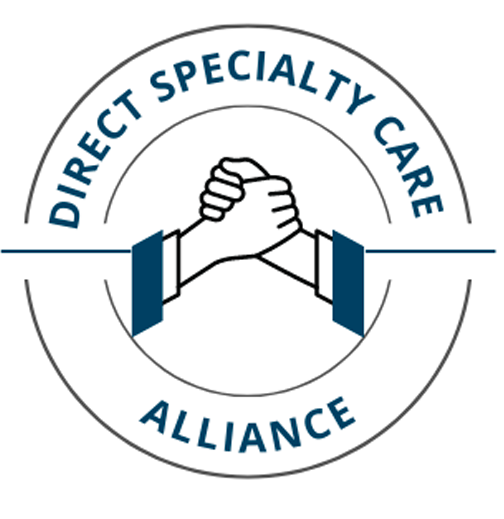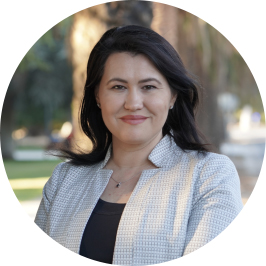In this article, we will explore the pros and cons of Hybrid Practice and Direct Specialty Care to make an informed decision. Read our comprehensive comparison and analysis to weigh the benefits and drawbacks of each model and make an informed choice.
What is Hybrid Billing?
Dr. Tea Nguyen, the founder of a direct specialty care podiatry, practice replied ” Hybrid billing. So what a hybrid, I come to understand it, is you’re still contracted with some insurance, so you’re still bound to those contractual agreements, the payment arrangements, the things that you have to do to get paid, you know, the prior authorization, the ICD code, the CPT. So you can maintain that, and as you may know already when you maintain insurance contracts, you’re going to have a little bit more of an overhead expense.
You have to learn the billing code, you have to pay someone to collect the money, and then deal with the claim denials and the follow-ups and those things.
So some people may choose to contract with one or two insurances, it might be a medicare, it might be a blue shield PPO, whatever you decide.
Everything else that comes in your door is self-pay. So then you have that fee schedule as well as your insurance fee schedule.
So you can choose to bill it out yourself. We have a lot of sophisticated EMRs that can help you bill on its own without having the intermediaries like the billers, depending on what capacity you have.
If you’re a micro-practice, you can do it yourself. If you’ve got a lot of things going on, you might have to outsource that.
So you can do that.”
Benefits of Hybrid Practice vs Cash-Pay Practice
Dr. Diana Girnita, the founder of a rheumatology direct care practice, a telemedicine company, Rheumatologist OnCall, replied “In my opinion, I think if you are afraid of going to cash-pay and you don’t have some resources to support you for about six months, that might be an option. Or if you are practicing in an insurance-based model, you have the time to develop a cash-pay practice. It’s going to give you time and you can build up a patient population that will pay you cash. So I think that’s an advantage but it’s gonna, you know, prolong your suffering in dealing with insurance companies. That’s my takeoff.”
Dr . Tea continued “I really love this question because it could go both ways. If you’re in a situation where maybe you do locums then you do have to be contracted to maintain that locum’s position. I don’t think that exists for podiatry so it’s a little bit easier for me to say you don’t have to have a hybrid you can go straight to cash because a lot of what we do is usually underpaid anyway and so it doesn’t become it’s not a viable model for private practice in that regard. If you’re choosing to go hybrid because you’re afraid I find that to be an issue because now you’re working with the scarcity mindset that people will not pay for you and that’s how you show up in your value. So if you’re choosing to do it for different reasons you want to maintain locums you want to maintain some teaching credentialing I think that’s a good idea but to maintain it because you’re afraid that you can’t make money with people who are willing to pay cash. And that’s kind of an issue that we need to dig into a little bit deeper. So where I see this happening is people who are well-established, they’re used to getting insurance payments. They’re used to getting a really nice, comfortable money flow coming in, right? And then they suddenly opt-out and it’s scary because you get a decline in your revenue because now you have to remarket to a new population of people who want to pay. And that was exactly where I was. I was insurance, I opted out, I saw a decline in revenue, and then I had to relearn how to market to people who are actually willing to pay.
So if you go hybrid, then decide to opt-out, you’re actually restarting your practice. So you’re gonna get two headaches, not just the one.”
What Are the Benefits of Starting Purely Direct Care?
Dr. Tea believes that ” You learn the material you need to learn right away. You don’t have to restart your practice. So the struggles we have in private practice, whether we’re insurance-based or cash, is building your reputation. If you go straight into cash, you don’t ever have to think about a CPT code or ICD-10 code ever again.
You don’t have to deal with that. So I think it’s easier if you go from training or, you know, nothing into a direct care practice.”
Diana Girnita said ” I do know people that went directly from training to a direct care practice, and I also got in direct care practice, direct specialty care practice, right after I was done with a traditional private practice. I can tell you that you learn quickly what you need to do. You learn quickly that you have value because that’s the biggest, biggest challenge that physicians have. As you said, it’s about our mindset. We are thinking that we cannot do it or we think that we don’t have value if we don’t have a system to back up our value when instead…
The other way around, we bring value to the systems where we are, and we actually build up practices for them.
It’s based on our reputation that you build up that practice, so what I would say is, like you said, it’s all about your mindset, and it’s all about how you see in front of the patients. The other thing is that you have to understand that your practice is not for everybody, and you will get people that will tell you, I don’t come because I want to use my insurance, but there are more and more patients that realize that having an insurance is not a guarantee towards health care or medical care, and many times, unfortunately, in our days, it’s an impediment.
There are many steps that you have to do before you get care using the… insurance card. And it’s limiting and it’s postponing your care.
So once people realize that and they realize your value, they will come back.”
Direct Specialty Care -for which specialties would this model work?
Dr. Tea replied: “The question really is, where does it not work? Because I have a long list of people where it does work. You can see in the Facebook group, all of the different specialties are represented. Orthopedics, podiatry, rheumatology, neurology, oncology, nephrology. I think we forget that there’s a population of people who don’t have insurance. So they just want easy access. I used to call offices and ask what the cash price of things are and I’ll- a lot of them can’t answer.
So automatically they’ll say, well, if you don’t have insurance, we can’t see you. Isn’t that weird? So you’re opening up doors for people who need access.
So I think what specialties it does not work for is anyone who requires a lot of services, resources like trauma, for example.
So if you’re going to be a hospital-bound trauma call, stuff like that, it doesn’t make sense to be cash.
But if you’re going into a private practice where you want to do more elective things, you want a low-key type of lifestyle, then it makes total sense to do it.
Dr. Diana Girnita said ” Yes, that’s very true. As you mentioned, we have people from all kinds of specialties in the group. We have people from all kinds of specialties that joined the direct specialty care alliance. I’m always surprised to see another specialty coming in. Not only that I’m surprised, but I’m happy to see another specialty.
I will give you… For example, I’ve just seen someone that is an anesthesiologist and he started regenerative medicine practice and they join us. So there are ways, and I recently was to a meeting in Las Vegas where I met anesthesiologists, orthopedics, sports medicine, and what are the specialties, PMNR, and many of these people were in direct care. I was like thrilled to see all these surgical specialties coming in, you know, and all the other specialties that I think they started to realize that people, they are willing to pay for good quality medical care.”
If you are interested to learn more about direct specialty care watch out Youtube Channel, or join the Direct Specialty Care Alliance, by visiting our website dscalliance.org.





